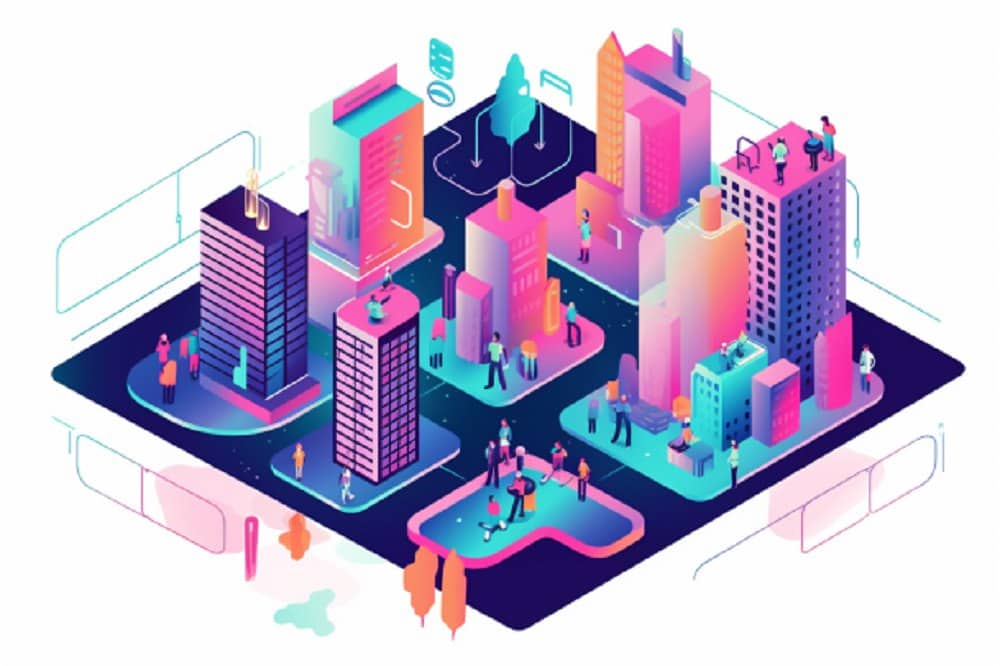Real-world assets (RWAs) are increasingly fueling rapid growth and potential use cases in the decentralized finance (DeFi) and cryptocurrency sector. By integrating tangible assets like real estate and digital arts, the DeFi space will likely see increased ownership and investment opportunities.
Real-World Assets In Crypto
Real-world assets refer to the physical and material support in traditional finance institutions and other platforms. They constitute a significant fraction of conventional finance and serve as collateral for lenders and borrowers in the financial realm for many years.
In the pre-blockchain era, ownership documentation for these tangible assets relied on physical records before eventually progressing to digital files stored on computer systems. Hence, integrating these real-world assets into the blockchain and keeping them as digital assets, such as non-fungible tokens (NFTs), make them safe, ensuring their immunity against tampering.
Moreover, this transition enables these assets to have several use cases, enhancing their financial liquidity and enabling their fractionalization.
How DeFi Can Benefit from Tokenized RWAs
As the crypto industry continues to divide opinions among advocates and skeptics, it is worth noting that the market is just a slice of the global financial ecosystem. Meanwhile, decentralized finance has continued to play a vital role in shaping the global economic landscape, with proponents noting that it has much more to offer than traditional finance.
Following the conclusion of the bullish market surge in 2021, the Total Value Locked (TVL) in DeFi has experienced a decline. However, introducing Real-World Assets into the DeFi ecosystem could attract trillions of dollars.
This infusion boosts liquidity within the blockchain network and establishes novel prospects for investors, facilitated by implementing smart contracts. Furthermore, tokenizing tangible assets empowers owners with enhanced flexibility and autonomy over their funds.
Through fractionalized ownership, investors can sidestep the high entry barrier that currently hinders millions of individuals globally from embarking on property ownership. This transformative approach opens doors to broader accessibility and participation in the real estate market, enabling a more inclusive and equitable landscape for potential homeowners.
Beyond real estate, a notable example is the partnership between Hamilton Lane (a renowned private equity fund) and Securitize, leading to the tokenization of their flagship fund on the Polygon blockchain. This deal introduced security tokens that could be acquired with a minimum investment of $50,000, defying the conventional barrier of a $5 million minimum buy-in requirement.
Thus, these pioneering initiatives highlight the democratizing power of tokenization, opening avenues for broader participation and investment opportunities.
RWAs And Digital Assets
Below are a few RWAs opportunities users can explore:
High-Value Art
The tokenization of exquisite art pieces and collectibles introduces a revolutionary approach to unlocking the ownership of renowned artworks. Curators and collectors can possess shares of historically significant works by having fractionalized rights.
This process establishes an unalterable ledger of ownership, safeguarding art from counterfeiting attempts and facilitating the detection of fraudulent transactions.
Real Estate
The vast global real estate industry dominates the traditional finance landscape, representing one of the largest markets worldwide. By tokenizing properties and transforming them into digital assets, this colossal sector seamlessly integrates into the DeFi ecosystem, providing owners with amplified control and utility over their holdings.
Historically, the real estate market has been characterized by exclusivity and limited liquidity. However, this massive industry has undergone a remarkable transformation through tokenization, becoming significantly more liquid and accessible to a broader range of investors.
Intellectual Property Right
Handling intellectual property (IP) rights is widely considered a challenging endeavor. But the process of monetization and transfer becomes significantly streamlined by converting IP rights into digital assets, offering enhanced simplicity and efficiency when transitioning these rights between legal entities.
Thus, creators, innovators, and businesses can easily navigate the intricate landscape of IP management, unlocking new avenues for value creation. Meanwhile, some DeFi platforms are already utilizing RWAs.
They include Marple Finance, Centrifuge, and GoldFinch.
At Tokenhell, we help over 5,000 crypto companies amplify their content reach—and you can join them! For inquiries, reach out to us at info@tokenhell.com. Please remember, cryptocurrencies are highly volatile assets. Always conduct thorough research before making any investment decisions. Some content on this website, including posts under Crypto Cable, Sponsored Articles, and Press Releases, is provided by guest contributors or paid sponsors. The views expressed in these posts do not necessarily represent the opinions of Tokenhell. We are not responsible for the accuracy, quality, or reliability of any third-party content, advertisements, products, or banners featured on this site. For more details, please review our full terms and conditions / disclaimer.



